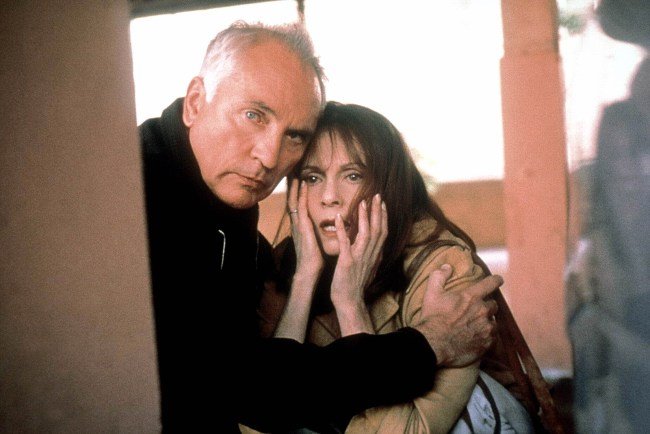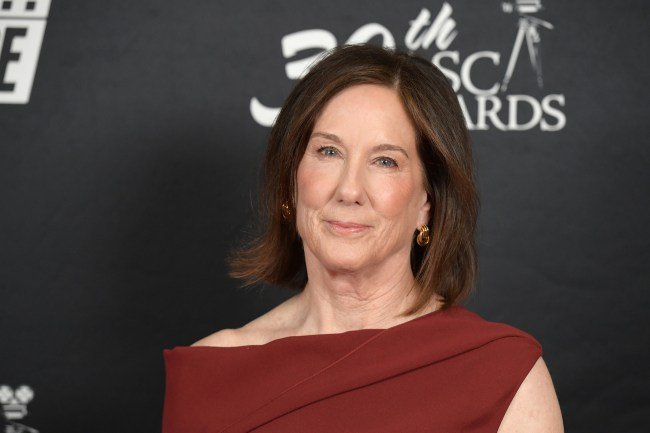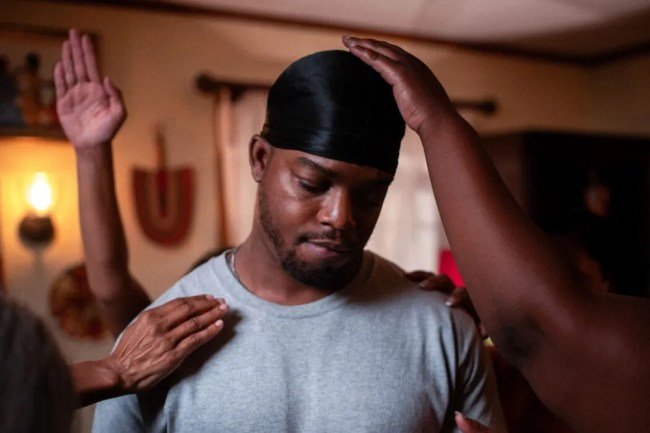Lesley Ann Warren on His ‘The Limey’ Role

When Terence Stamp passed away on August 17, he left behind a legacy of incredible performances, ranging from his breakthrough role as the title character in “Billy Budd” and assignments for European auteurs like Pier Paolo Pasolini (“Teorema”) and Federico Fellini (“Toby Dammit”) to his comeback role as General Zod in the “Superman” movies. Yet as good as all these films and many of his others are, there’s one Terence Stamp movie that gave him the part he was born to play: director Steven Soderbergh‘s “The Limey.”
Working with a razor-sharp script by his “Kafka” and “Haywire” collaborator Lem Dobbs, Soderbergh made “The Limey” a tailor-made showcase for Stamp’s distinctive blend of wry humor, brooding intensity, and icy charisma. Stamp plays Wilson, a British ex-con who travels to Los Angeles to avenge the murder of his daughter, whom he suspects was killed by aging music mogul Peter Fonda or someone in his orbit.
It’s a character that riffs on both earlier Stamp performances (most notably his work in Ken Loach’s “Poor Cow,” which is integrated into “The Limey” as flashback footage) and his personal biography as a 1960s icon, since Soderbergh and Dobbs use their revenge story as a vessel into which they can pour every idea they’ve ever had about the era and its unfulfilled promises. Wilson is one of the richest characters in Stamp’s oeuvre: regretful and resigned, hilarious and mournful, and deeply angry yet with flashes of tenderness.
The fervor with which Stamp attacks the role was evident right from the first table read, according to his co-star Lesley Ann Warren. “I did a read-through with Terence and Steven Soderbergh, and I was totally terrified,” Warren told an audience at the American Cinematheque. “He’s very imposing in real life. He was a very formidable man.”
The Cinematheque screened “The Limey” last week as part of its “Starring Terence Stamp” series, which runs through September 25 and features key Stamp works like “The Adventures of Priscilla, Queen of the Desert” and William Wyler’s “The Collector.” Warren, who plays Elaine, a struggling actress who helps Wilson in his quest (she was his daughter’s acting teacher), participated in a post-screening Q&A to pay tribute to Stamp and talk about her experience on the movie.
“I had never met him, but I was such a fan of his from the time of ‘Billy Budd’ on,” Warren said, adding that the fact that she was intimidated by the actor fed her performance. “I was nervous, but it actually helped with the character because she’s so uncertain and suspicious and unsure.” Indeed, one of the movie’s many pleasures is the power of Warren’s quiet, understated portrayal of a lonely woman whose dreams have not worked out — a far cry from Warren’s more energetic and comic performances in movies like “Clue” and “Victor/Victoria.”
It’s a type Warren recognized from her years in Hollywood. “ I know some of those people and see what they go through,” she said. “Men and women who just keep trying and trying, and they get a little something, and it keeps them hooked. They work a lot of other jobs, and it’s all great, but there’s a kind of chronic heartbreak because you never really accomplished what you had come out here for or dreamt about doing.”
Understanding the character implicitly, Warren dressed the way she thought Elaine would dress for her first meeting with Soderbergh, and tried to be as low-key as possible. When she got the part, Soderbergh not only had the costume designer model Elaine’s wardrobe on what Warren wore to her audition, but was surprised to find that Warren was completely unlike her melancholy character. “I was laughing about something with the hairdresser one day, and Steven came over and said, ‘You’re not really a depressed person, are you?’ I said, ‘No, I was just trying to get hired.’”
According to Warren, Soderbergh almost never talked to her about her character or her performance — but that doesn’t mean he wasn’t directing. On the day of her most emotional scene, Soderbergh bugged Warren incessantly by telling her a long, bad joke right before she went on camera. “When we were done, I said, ‘Why did you do that?’ He said, “Because I know you, and if you start crying, you won’t stop.’ And I thought, that’s really true about me, how incredibly perceptive. So he directs in this very oblique way, never actually talking about the scene or what should happen. He gets you there without you even knowing what he’s doing. Brilliant.”
Warren found Soderbergh’s oblique way of directing perfect for an oblique script — and a movie that became even more oblique in the editing, as Soderbergh reshuffled the linear narrative to be out of order and more evocative of past memories than a present-day story being told with immediacy. “He changed the entire movie and made it into a kind of dream memory film,” Warren said, noting that that meant shooting the same dialogue scene in different locations and then cutting them together, so that they would feel more like memories where one isn’t quite sure of where certain things were said or heard.
“I had never done that,” Warren said, noting that the different locales helped bring added dimension to the scene every time she and Stamp played it. “The environment affected both of us. We walked and talked by the ocean in a different way, versus when we were in the apartment. There was an intimacy in the apartment that wasn’t there outside. It was as if it was a whole new scene.”
Although Soderbergh’s drastic restructuring left some key scenes on the cutting room floor — including a love scene between Warren and Stamp that she says was the first time she was finally able to relax a little — Warren was thrilled by the final result when she first saw the movie put together. “It was a whole other movie than I had anticipated, but I really loved it.”
Warren sat through the movie again at the Cinematheque, and said that even after seeing it multiple times, she never gets tired of Stamp’s performance — or of another actor who recently left us, Nicky Katt. “I miss Nicky Katt so much,” she said, adding that all of his comic dialogue as an inappropriate hit man was improvised. “He was so great, and Steven loved him.”
As for Stamp, “He’s so powerful and interesting and complex that I’m just as enthralled as I was in the beginning. I never tire of the performance. And I’m just struck by how new the movie still feels.”
“Starring Terence Stamp” runs through September 25 at the American Cinematheque.






